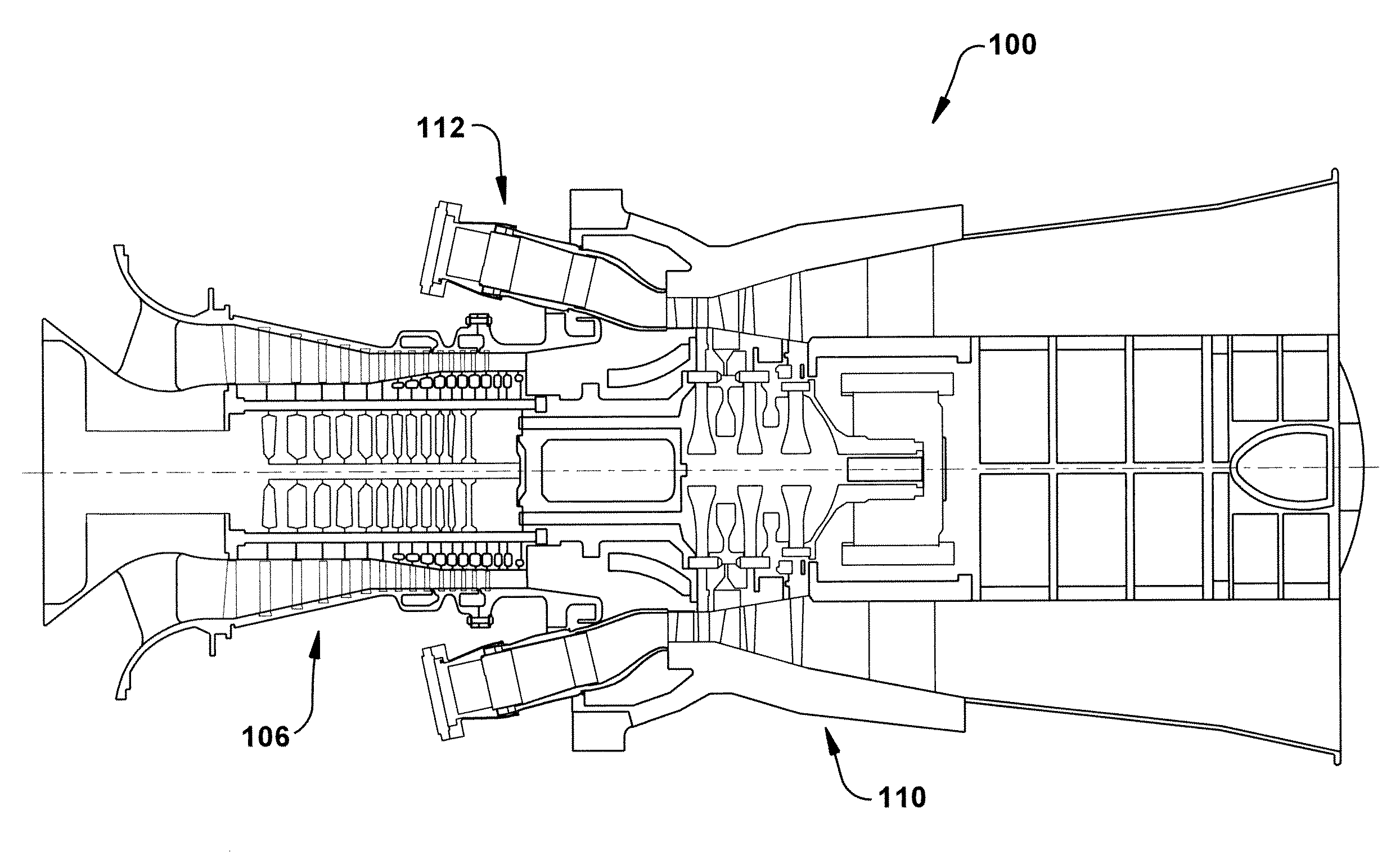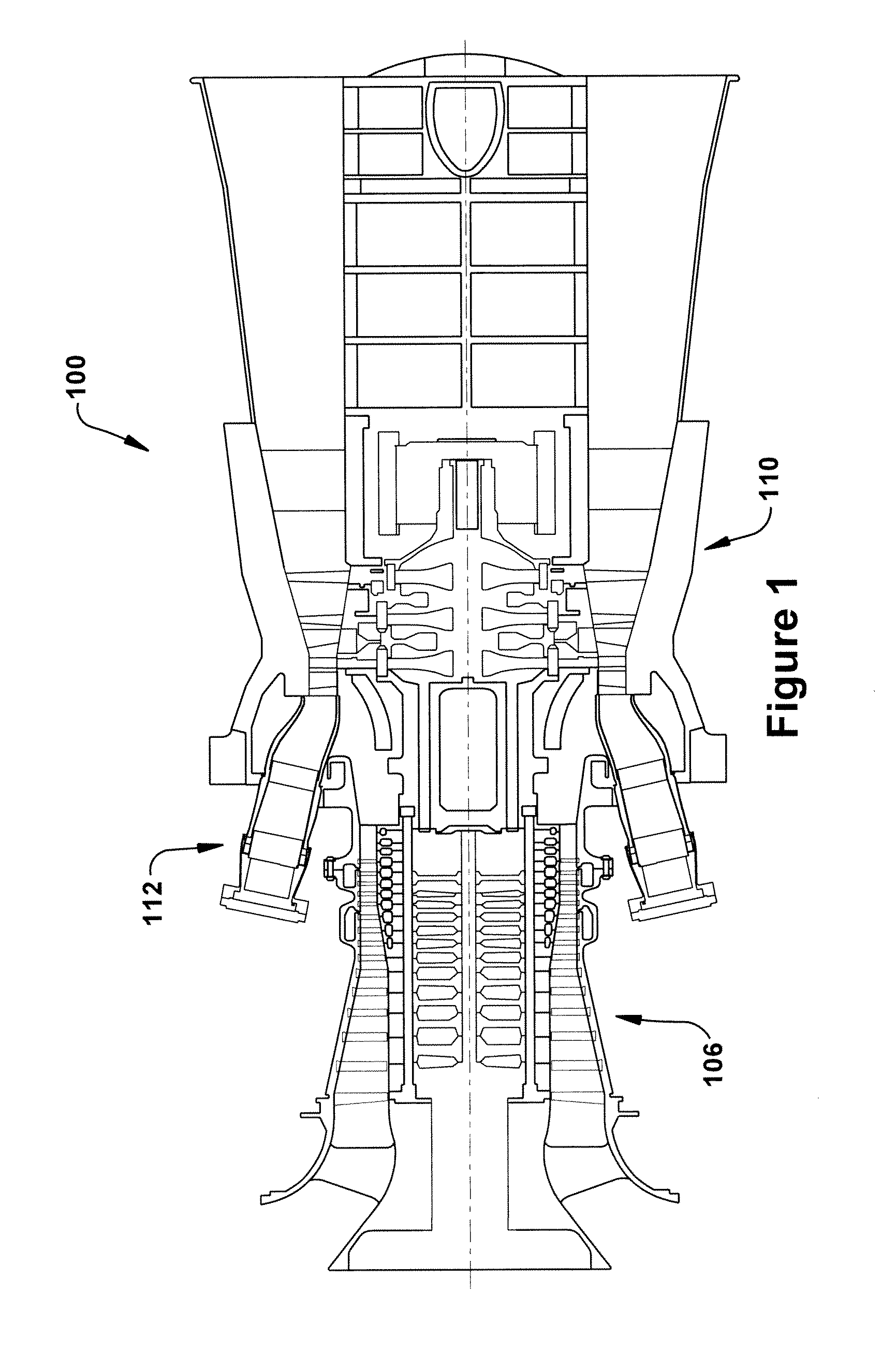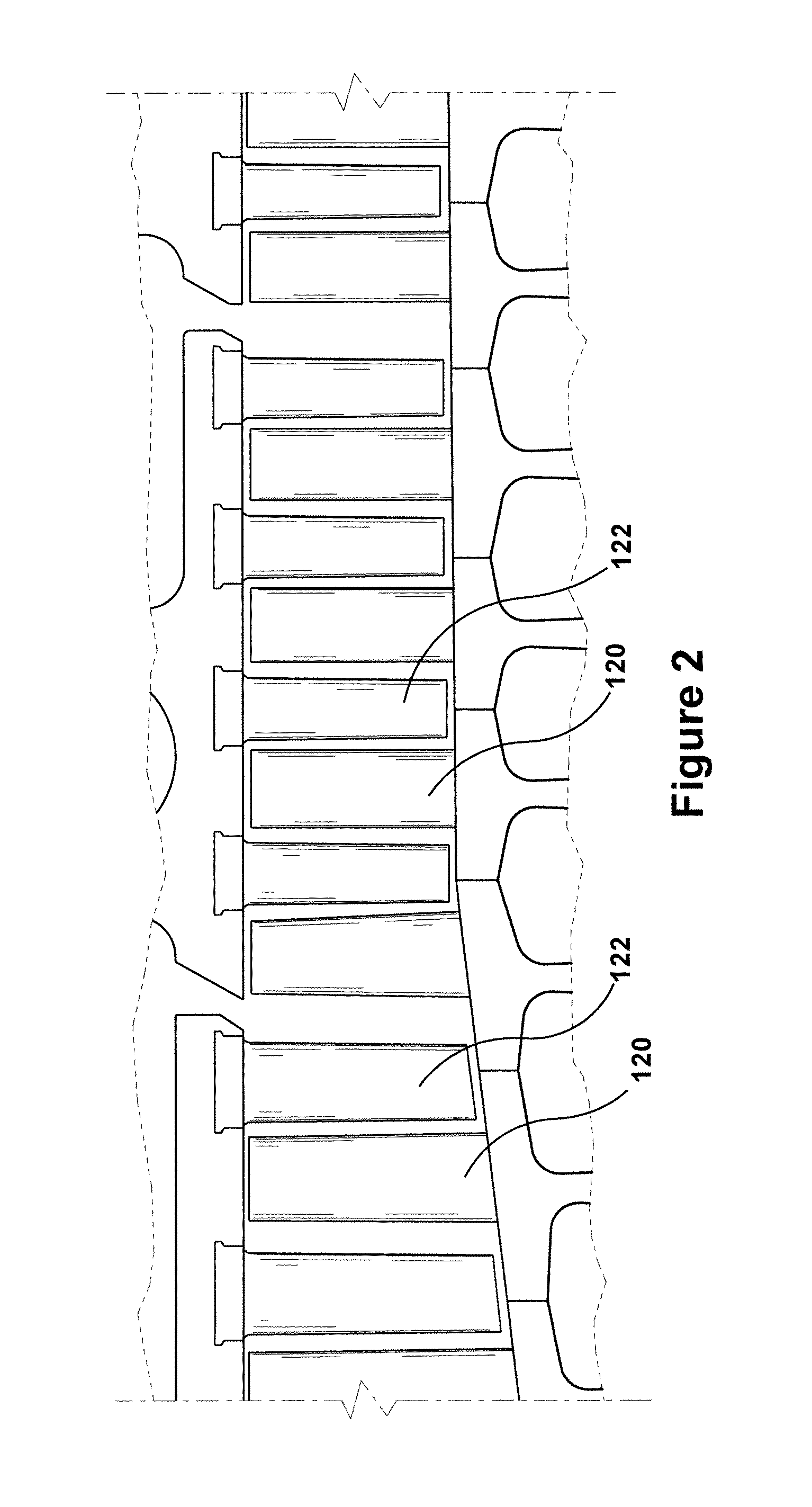Methods, systems and apparatus for detecting material defects in combustors of combustion turbine engines
a technology of combustion turbine engines and material defects, applied in the direction of material magnetic variables, lighting and heating apparatus, instruments, etc., can solve the problems of chain reaction that destroys downstream systems and components, component failure remains a significant concern in combustion turbine engines, and may be nearing the limit of its useful li
- Summary
- Abstract
- Description
- Claims
- Application Information
AI Technical Summary
Benefits of technology
Problems solved by technology
Method used
Image
Examples
Embodiment Construction
[0023]Referring now to the figures, FIG. 1 illustrates a schematic representation of a gas turbine engine 100 in which embodiments of the present invention may be employed. In general, gas turbine engines operate by extracting energy from a pressurized flow of hot gas that is produced by the combustion of a fuel in a stream of compressed air. As illustrated in FIG. 1, gas turbine engine 100 may be configured with an axial compressor 106 that is mechanically coupled by a common shaft or rotor to a downstream turbine section or turbine 110, and a combustion system 112, which, as shown, is a can combustor that is positioned between the compressor 106 and the turbine 110.
[0024]FIG. 2 illustrates a view of an axial compressor 106 that may be used in gas turbine engine 100. As shown, the compressor 106 may include a plurality of stages. Each stage may include a row of compressor rotor blades 120 followed by a row of compressor stator blades 122. Thus, a first stage may include a row of co...
PUM
| Property | Measurement | Unit |
|---|---|---|
| thickness | aaaaa | aaaaa |
| distance | aaaaa | aaaaa |
| threshold temperature | aaaaa | aaaaa |
Abstract
Description
Claims
Application Information
 Login to View More
Login to View More - R&D
- Intellectual Property
- Life Sciences
- Materials
- Tech Scout
- Unparalleled Data Quality
- Higher Quality Content
- 60% Fewer Hallucinations
Browse by: Latest US Patents, China's latest patents, Technical Efficacy Thesaurus, Application Domain, Technology Topic, Popular Technical Reports.
© 2025 PatSnap. All rights reserved.Legal|Privacy policy|Modern Slavery Act Transparency Statement|Sitemap|About US| Contact US: help@patsnap.com



